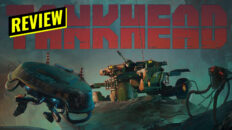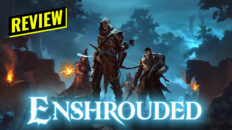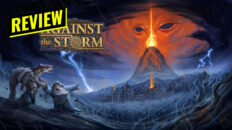Developer: Sloclap
Publisher: Sloclap
Reviewed on: PlayStation 4
Code Received.
Having grown up on martial arts media, sneaking midnight viewings of classic Golden Harvest movies and breaking far too many joysticks playing IK+, I’ve always gravitated towards the more cinematic brawlers such as the 2004 cult classic Rise To Honour. In a genre that nowadays tends to lean into one-on-one tournament fighters, I’ve been looking for a much more cinematic, full blooded experience and boy has Sloclap delivered a foot to the face of the genre.
The game opens up on a strong note: You control a man on a mission, tearing through a house, dispatching enemies with deft style, until you encounter your target, who you fatally dispatch. Triumphant? No. It’s not his story. It’s the story of a child, hidden away having just witnessed his (or her) father killed by an assassin, and swearing vengeance. We then time jump to the boy as a young twenty year old, rampaging through modern day China playing out that vengeance. It won’t be the only time we see him age. Through a magical talisman, our hero can be revived after receiving a fatal blow, but at the cost of several years added to his with each resurrection. Can you defeat all your foes and get your vengeance before the talisman takes you to the limits of your natural lifespan?
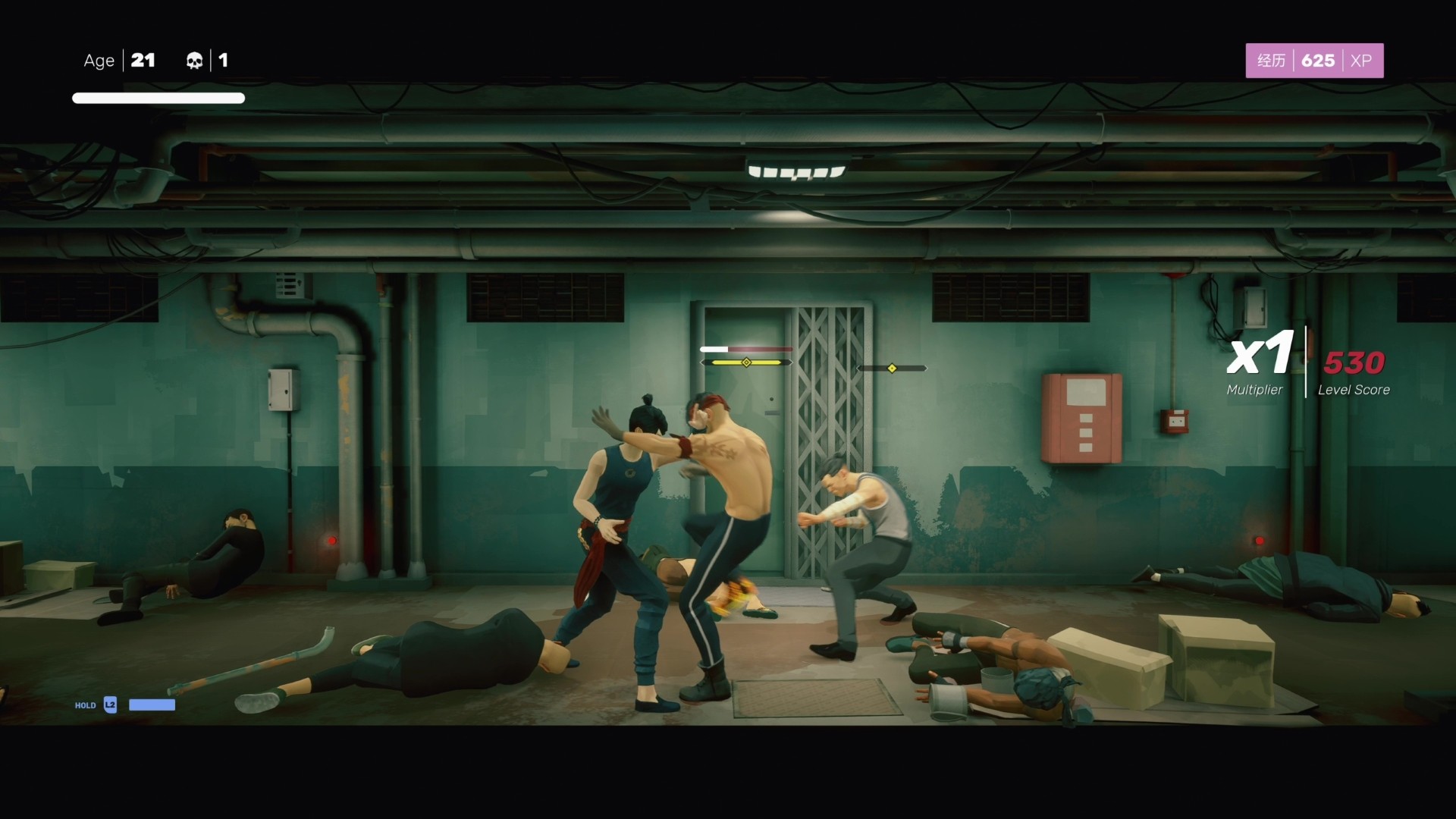
Sifu very much refines elements of the Sloclap’s previous game, Absolver. It moves away from it’s occasionally obtuse frame and distills it into a more structured and linear single player experience. Although within that, it still deviates from convention. With a combat system relatively based in reality and on the Pak Mei form, you have a plethora of moves, counters, stuns and combos at your disposal. Their effectiveness hinges upon both your and your opponents’ “structural gauge,” which when broken opens them up to a finisher. Mechanically this is all sound, but what really gives Sifu its kick is fight interactions with the environment. The mix of robust combat and seamless animation has heads, backs, and arms cinematically bouncing off of tables, walls, railings… it all feels very moment to moment and impactful.
The real hook to this game is the combination of the ageing mechanic and the refining of your runs through the levels. Every time your player dies, you age not only in years, but in experience and wisdom. You’ll become tougher and more experienced, but also inevitable frail and more susceptible to damage the older you get. This can be reduced, however, as defeating tougher grunts reduces the yearly cost your death. Very occasionally you will have the opportunity to reset your years completely, which brings us to the upgrade and skill tree system.
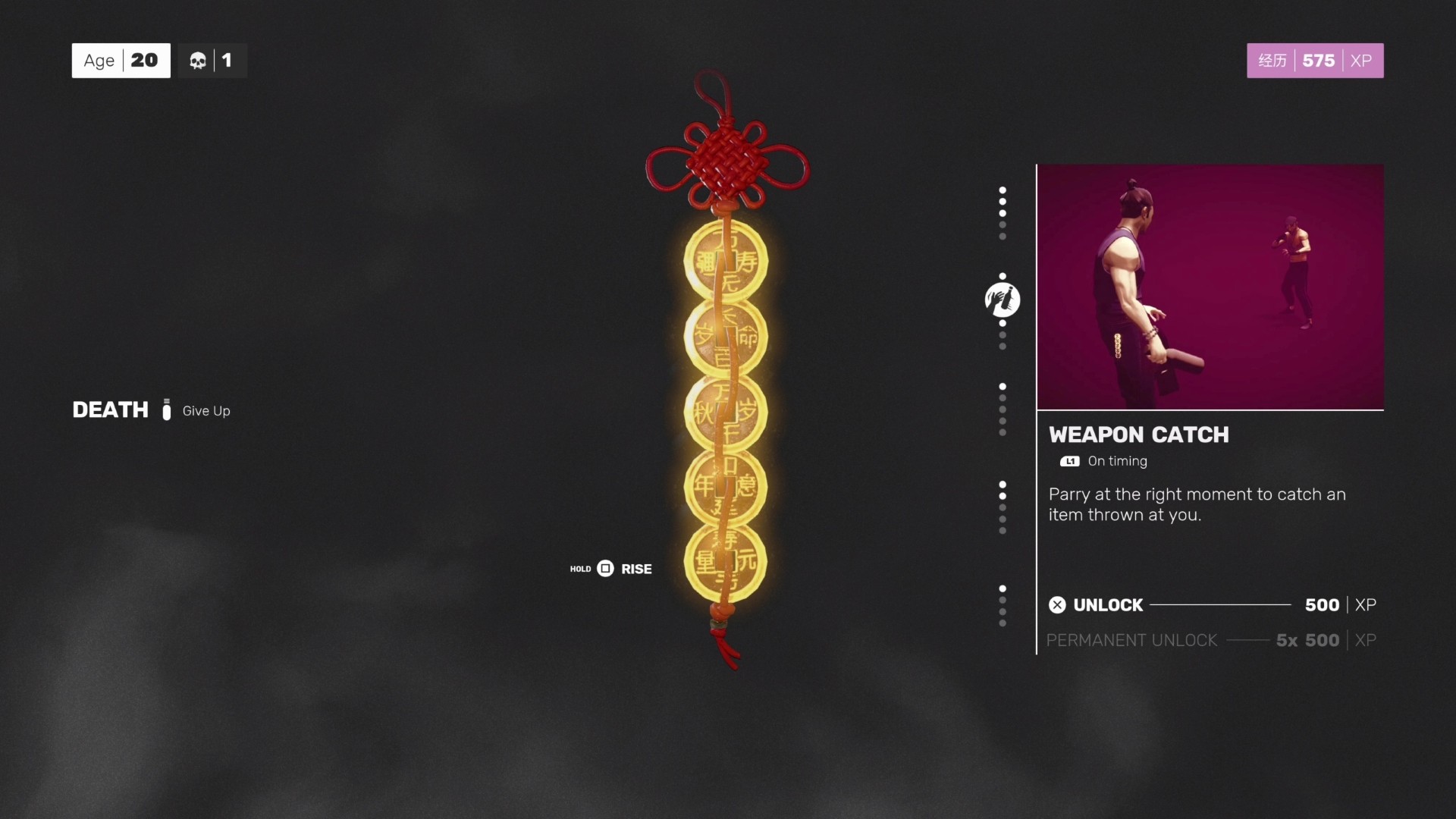
At various points on your travels you will find green dragon ornaments, where you can either spend your game currency, split between XP points and game score, which will allow you to buy perks like weapon durability, health regeneration, tougher structural bar, etc. However, the more you have aged in your current run the more perks are closed off. More interesting is the actual move tree, which on initial XP purchase are one run only. However, after that it is possible to purchase them permanently for a multiplied cost. This opens up your progression options nicely. Do you XP grind, or do you burn though the levels using shortcuts you’ve discovered, sacrificing your precious upgrade coins to advance, with less risk to your talisman and hitting the next stage checkpoint as young as possible? It’s an engaging loop that nicely dodges repetition. Sifu is a game that rewards focus, but doesn’t let you off light with mistakes. If you’re not on the ball, levels you can sail through can suddenly rob you of thirty years in quick succession, thanks to smart AI, punishing brutes, and low level thugs that can boost to near mini bosses if they perfectly parry your blows.
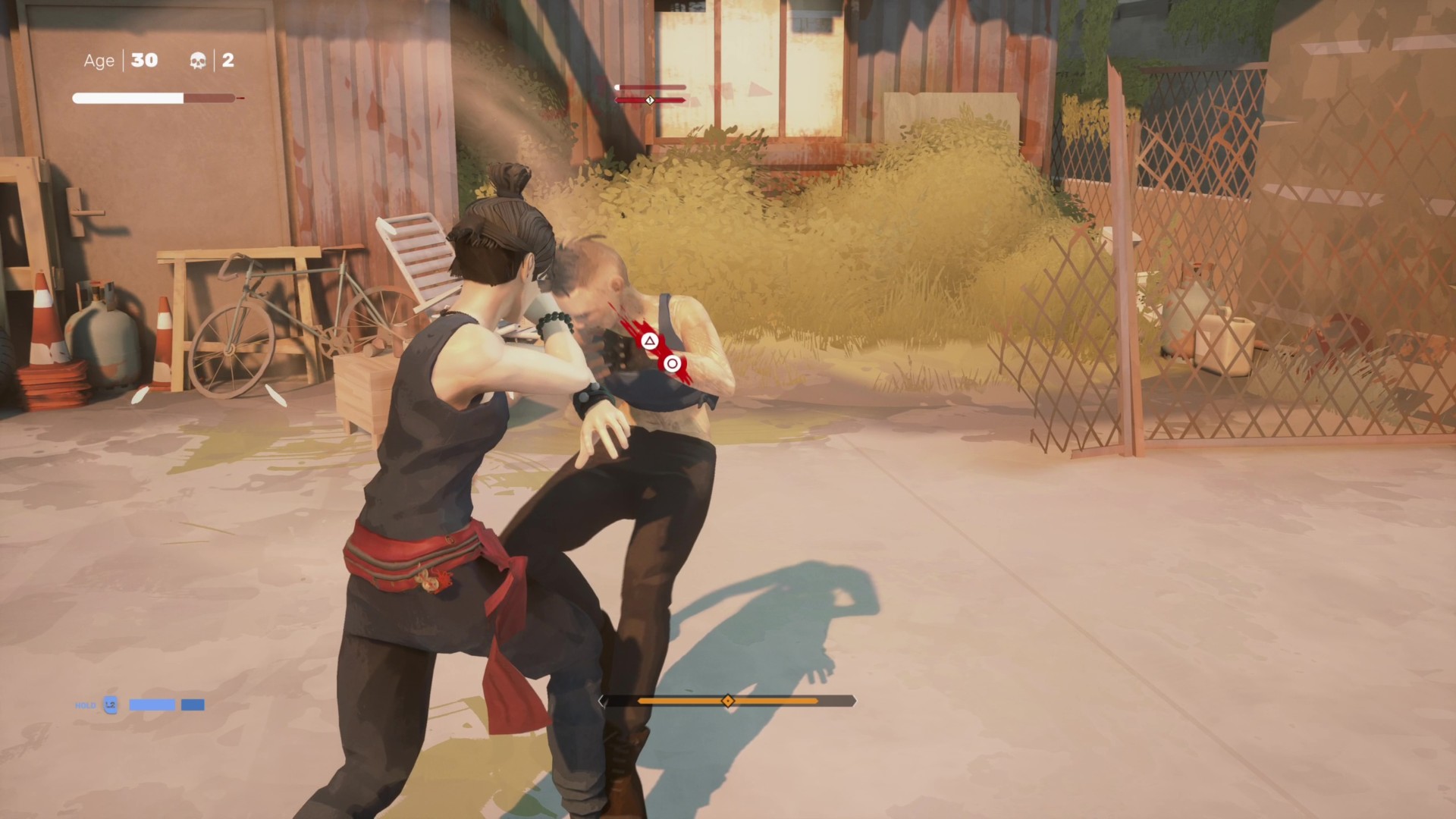
The aesthetic of the game is also striking. It has a deceptively simple, but effective character design; angular, but with very distinctive enemy designs, and delivered with an almost pastel, paint-like palette. Environments are varied and drive the cinematic influences, with gritty brawls in a decrepit apartment complex having a heavy nod toward The Raid. A surprise shift into a side scrolling corridor gauntlet is pure Oldboy. There’s also a nice variety, moving from derelict slums to neon soaked nightclubs. The soundtrack also really lifts the mood, with a driving score and some crunchy, deep thuds adding weight to the combat.
I thoroughly enjoyed my time with Sifu. It’s one of the more impressive and impactful hand to hand brawlers to turn up in a good while. The fighting is crunchy, cinematic and seamless, the death loop element really has a “just one more run: draw, and the atmosphere is very engaging. As a lover of the both the game genre and kung fu media, I can’t recommend it enough.


